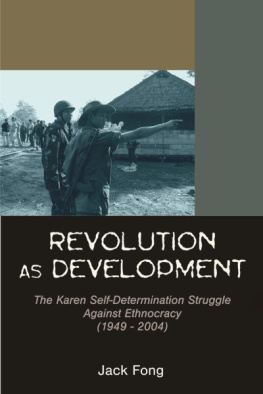Feminism and the Legacy of Revolution
This series of publications on Africa, Latin America, Southeast Asia, and Global and Comparative Studies is designed to present significant research, translation, and opinion to area specialists and to a wide community of persons interested in world affairs. The editor seeks manuscripts of quality on any subject and can usually make a decision regarding publication within three months of receipt of the original work. Production methods generally permit a work to appear within one year of acceptance. The editor works closely with authors to produce a high-quality book. The series appears in a paperback format and is distributed worldwide. For more information, contact the executive editor at Ohio University Press, Scott Quadrangle, University Terrace, Athens, Ohio 45701.
Executive editor: Gillian Berchowitz
AREA CONSULTANTS
Africa: Diane M. Ciekawy
Latin America: Thomas Walker
Southeast Asia: William H. Frederick
Global and Comparative Studies: Ann R. Tickamyer
The Ohio University Research in International Studies series is published for the Center for International Studies by Ohio University Press. The views expressed in individual volumes are those of the authors and should not be considered to represent the policies or beliefs of the Center for International Studies, Ohio University Press, or Ohio University.
Feminism and the
Legacy of Revolution
Nicaragua, El Salvador, Chiapas
Karen Kampwirth
2004 by the Center for International Studies
Ohio University
Printed in the United States of America
All rights reserved
12 11 10 09 08 07 06 05 04 5 4 3 2 1
The books in the Ohio University Research in International Studies Series are printed on acid-free paper

The author is grateful for permission to reprint material from the following previous publications:
The Mother of the Nicaraguans, Latin American Perspectives 23, no. 1 (1996): 6871. Copyright 1996 by Karen Kampwirth. Reprinted by permission of Sage Publications, Inc.
Confronting Adversity with Experience, Social Politics 3 (1996): 13658. Reprinted by permission of Oxford University Press.
Legislating Personal Politics in Sandinista Nicaragua, Womens Studies International Forum 21, no. 1 (1998): 5364. Reprinted by permission of Elsevier.
Feminism, Antifeminism, and Electoral Politics in Post-War Nicaragua and El Salvador, Political Science Quarterly 113, no. 2 (Summer 1998): 26769.
Women and Guerrilla Movements (University Park: The Pennsylvania State University Press, 2002). Copyright 2002 by The Pennsylvania State University. Portions reproduced by permission of the publisher.
Library of Congress Cataloging-in-Publication Data
Kampwirth, Karen, 1964-
Feminism and the legacy of revolution : Nicaragua, El Salvador, Chiapas / Karen Kampwirth.
p. cm. (Ohio University research in international studies. Latin America series ; no. 43) Companion v. to Women & guerrilla movements.
Includes bibliographical references and index.
ISBN 0-89680-239-6 (pbk. : alk. paper)
1. Women political activistsLatin America. 2. Women revolutionariesLatin America. 3. FeministsLatin America. 4. FeminismLatin America. I. Kampwirth, Karen, 1964- Women & guerrilla movements. II. Title. III. Series: Research in international studies. Latin America series ; no. 43.
HQ1236.5.L37K347 2004
305.42'09728dc22
2004014104
In memory of my dear friend Silvia Carrasco (Sonia in this book).
Feminist and revolutionary, she left the world a more just place than she
found it.
Contents
Preface and Acknowledgments
This book can be seen as a companion volume to Women and Guerrilla Movements: Nicaragua, El Salvador, Chiapas, Cuba (Pennsylvania State University Press, 2002). Both books draw on the same collection of over two hundred interviews I conducted between 1990 and 2000. Both tell the stories of many of the women who were mobilized into the revolutionary movements and who went on to become feminist activists. But while the two volumes are informed by the same fieldwork, they are quite different theoretically and historically. In fact, this book begins where the other one left off. This book analyzes the legacy of the revolutionary movements, what happened after the revolutionary wars (in the cases of Nicaragua and El Salvador), and what happened after the guerrillas emerged publicly (in the case of Chiapas, where, as of this writing, the war continues).
In Nicaragua, the Sandinista Front for National Liberation (FSLN), was founded in 1961 to attempt to overthrow the Somoza family dynasty, a family that had ruled Nicaragua since 1936. Nearly two decades later the FSLN succeeded in overthrowing Anastasio Somoza and taking power. The FSLN was to govern until 1990, when the former guerrilla organization lost the second national election under its watch. In 1980 in El Salvador, the Farabundo Mart Front for National Liberation (FMLN), a coalition of five organizations, came together to try to overthrow the military-dominated government, a government that had, like the Somoza dictatorship of Nicaragua, ruled since the 1930s. Both the left and right in El Salvador saw neighboring Nicaragua as a model for what could happen in El Salvador, since the Somoza dictatorship had been overthrown by similar guerrillas just a year before the founding of the FMLN. As it turned out, the FMLN never succeeded in overthrowing the government it opposed but instead demobilized as part of a negotiated settlement in 1992; following more than a decade of brutal war in which at least seventy-five thousand people died. After the war, the FMLN became a political party and now it is one of the two major parties in the country, along with the Nationalist Republican Alliance (ARENA).
Like the FSLN of Nicaragua and the FMLN of El Salvador, the Zapatista Army for National Liberation (EZLN) of the Mexican state of Chiapas could trace its organizational roots to Marxist organizing in the 1960s. But by the time it organized in earnest in the jungles of the Chiapas in the 1980s, it had dropped much of its Marxist orthodoxy, at least in part because the government it sought to challenge, headed by the Party of the Institutional Revolution (Partido de la Revolucin Institucional, PRI), a political party that had governed without interruption since its founding in the 1920s, was less overtly dictatorial than the regimes that guerrillas sought to overthrow in Nicaragua and El Salvador. A different challenge required different strategies. The EZLN first emerged publicly in January 1994 with the seizure of seven cities in the early morning of New Years Day. Less than two weeks later the EZLN withdrew from armed combat and has entered a process of on-again, off-again negotiations with the government. Arguably, given the level of political violence that has plagued the state of Chiapas since 1994, the war continues.
So the three cases differ in important ways: in Nicaragua the guerrillas successfully overthrew the regime and governed for over a decade; in El Salvador the guerrilla war eventually ended in a negotiated settlement; in Chiapas the guerrillas did not overthrow the regime nor was that necessarily their goal. Additionally, the conflict in Chiapas (unlike the conflicts in Nicaragua and El Salvador) has yet to be resolved. But despite these differences, the role of women in the movements is an important factor they have in common. Perhaps a third of the combatants in the FSLN, FMLN, and EZLN were female, a fact that represented a significant change from earlier Latin American guerrilla movements, such as that of Cuba, in which only about 5 percent of the combatants were female.








